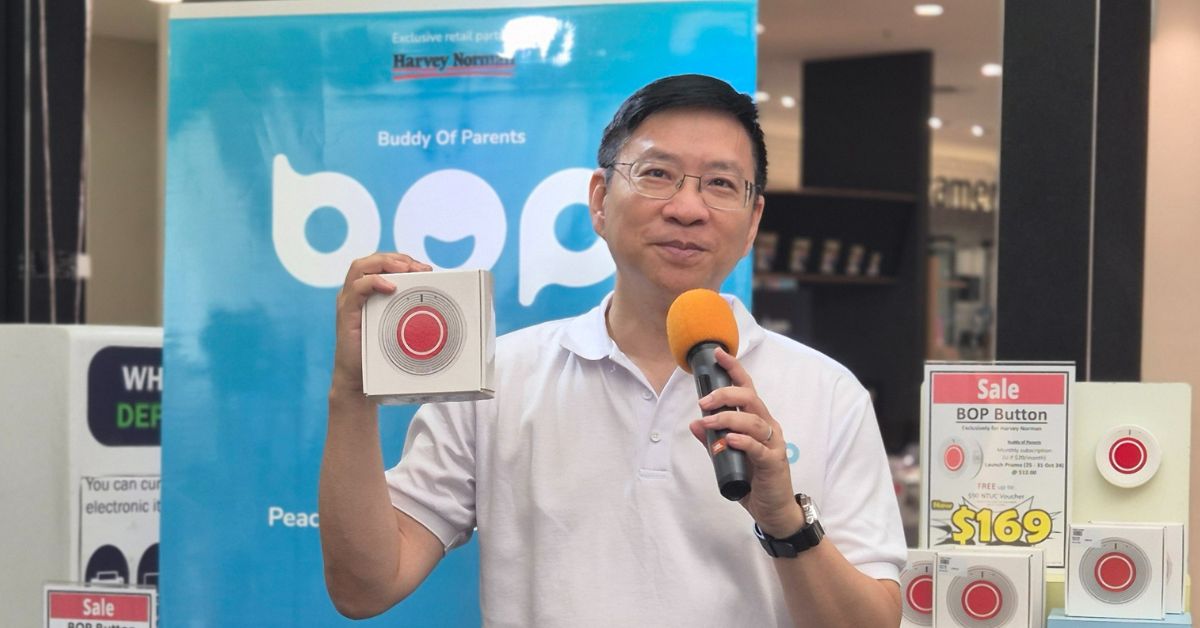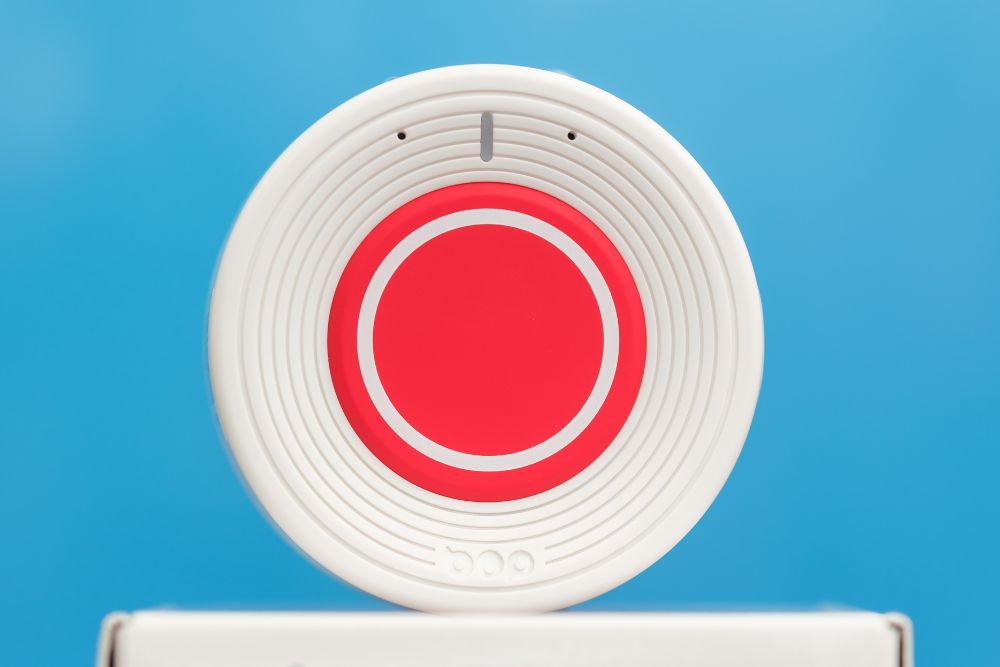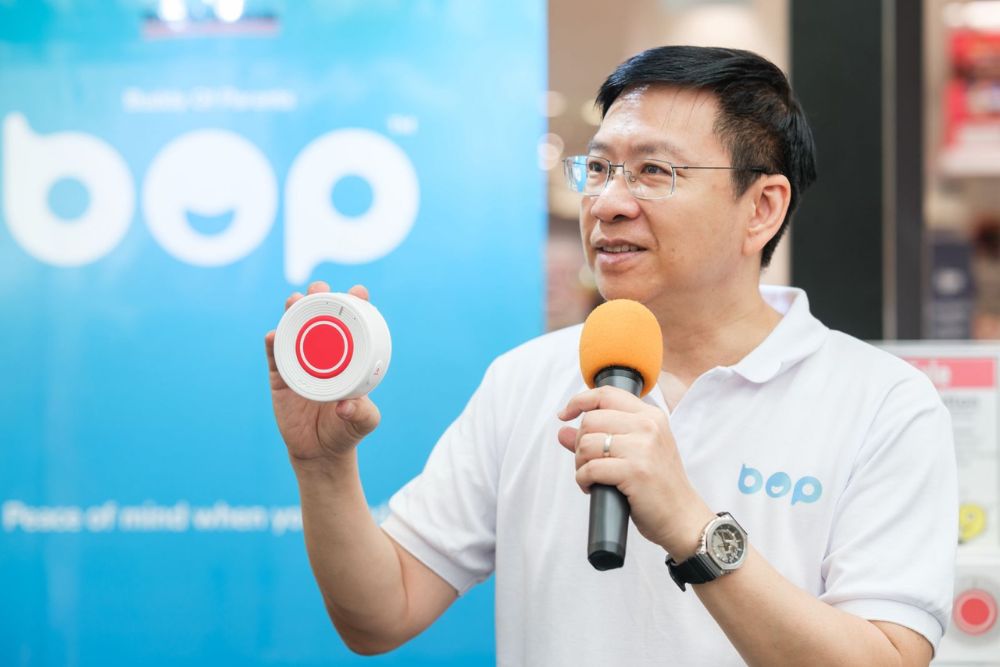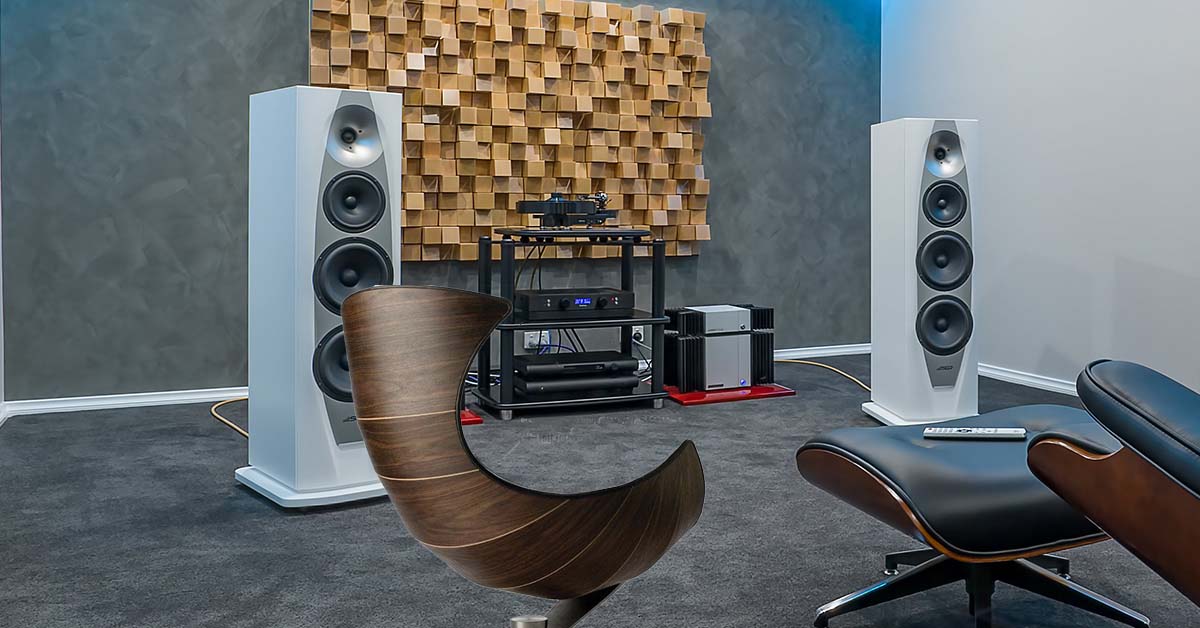
Singapore-based company BOP (or Buddy of Parents) has recently launched a wireless emergency alarm button for the home, kicking off a series of tech-enabled eldercare solutions designed for the country’s growing aged population.
The company’s first product, simply called the BOP Button, works like most home-based SOS systems in that only a single, simple action is required to activate it – in this case, the press of the big red button at its centre.
Where it differs from the competition is in what comes after. Once activated, the BOP Button records a 10-second audio clip that gets wirelessly transmitted to a professionally trained agent at the BOP response centre, who will then assess the situation, start a two-way call to find out more and direct emergency services to the senior’s home if necessary.
The help line is active 24/7, with all agents locally hired, trained and managed by the homegrown social enterprise SG Assist.
Meanwhile, up to five of the senior’s family members will be notified on the BOP mobile application, keeping them informed of the outcome and any relevant actions taken, such as which hospital they were conveyed to.
Advertisement
BOP Button speeds up emergency response

The multilayered process was born out of BOP executive director Chen Jer Yaw’s own brushes with family emergencies involving both his ageing parents and his children.
One incident the 55-year-old vividly recalls happened back in 2012, when his son fell down and started bleeding from a cut on his head. His wife called him, and he rushed back home from the meeting – borrowing a car from a colleague as he took public transport that day – to bring his son to the clinic.
More recently, his mother called him while he was overseas last December when she wasn’t feeling well. Jer Yaw’s younger brother who is a doctor was with him and recognised her symptoms and manner of speaking as signs of a stroke.
The Chen brothers panicked and had some difficulty contacting Singapore’s emergency services for their mother from another country, before realising that they had to dial in Singapore’s country code.
These incidents led me to understand that when there’s an emergency, we have a natural tendency to call our family members first. But our loved ones cannot be the first responders, as you need a clear head and presence of mind to act fast in times of emergencies.
He says,
Well-proven concept
BOP’s concept had already been proven with the work of its parent company iWow Technology, which supplied similar wireless alarm systems for 50 public housing rental blocks with high concentrations of seniors back in November 2019.
By the time 2023 rolled around, more than 800 seniors had received emergency medical assistance through this system, which was when the scheme was expanded to a further 170 blocks.
For Jer Yaw, it was a strong indication that a device as “straightforward” as a fixed panic button could be effective.
You can’t get any simpler than a big, red button on the wall,
he says.
While the system lacks the portability of wearable alarm necklaces and bracelets, the executive director says that these wearables come with their own set of drawbacks.
The problem with these wearables is adherence. If you forget to wear it, it won't help. If you don't take it out to charge regularly, it's just a necklace
he says.
On the other hand, the BOP Button’s battery life is said to last three years before needing a replacement. Users won’t need to check on the battery levels themselves, as BOP’s systems are “regularly pinging” individual buttons behind the scenes to ensure they’re still in working order.
Local touch of BOP

The price for the BOP Button consists of a one-off cost for the device itself, along with a monthly subscription fee, part of which goes to expanding the call agent team in line with demand.
According to SG Assist’s chief strategy officer Brendan Seah, their team of call agents include persons with disabilities (PWDs), family members of PWDs and people who are recovering from a stroke, among others.
This means that BOP users benefit from the empathy and cultural understanding of a local call team, while simultaneously doing good by helping provide these agents with a steady stream of income.
The BOP Button has been available on the company’s website since June, but can now be found on Harvey Norman shelves as well.
Jer Yaw adds that the wireless emergency alarm button is but the first in “a series of services” to be provided by the tech company. Some of their upcoming products include an activity monitoring device that alerts family members when there is a marked change in movement patterns, along with a “critical event detector”, which monitors accidents like falls.
These devices, he says, will be crucial in helping to keep Singapore’s ageing population safe, especially as shifting demographics and shrinking family sizes have led to a greater proportion of seniors living alone.
The number of Singapore citizens aged 65 and above living alone now hovers at around 76,000 as of 2023, is projected to increase by over 60% to 122,000 by the end of the decade.
Being engineers, we're always trying to make a better product that isn't just good for its own sake. There’s a human element to what we do, and I think we’re going to have a major role to play as Singapore ages,
he says.






